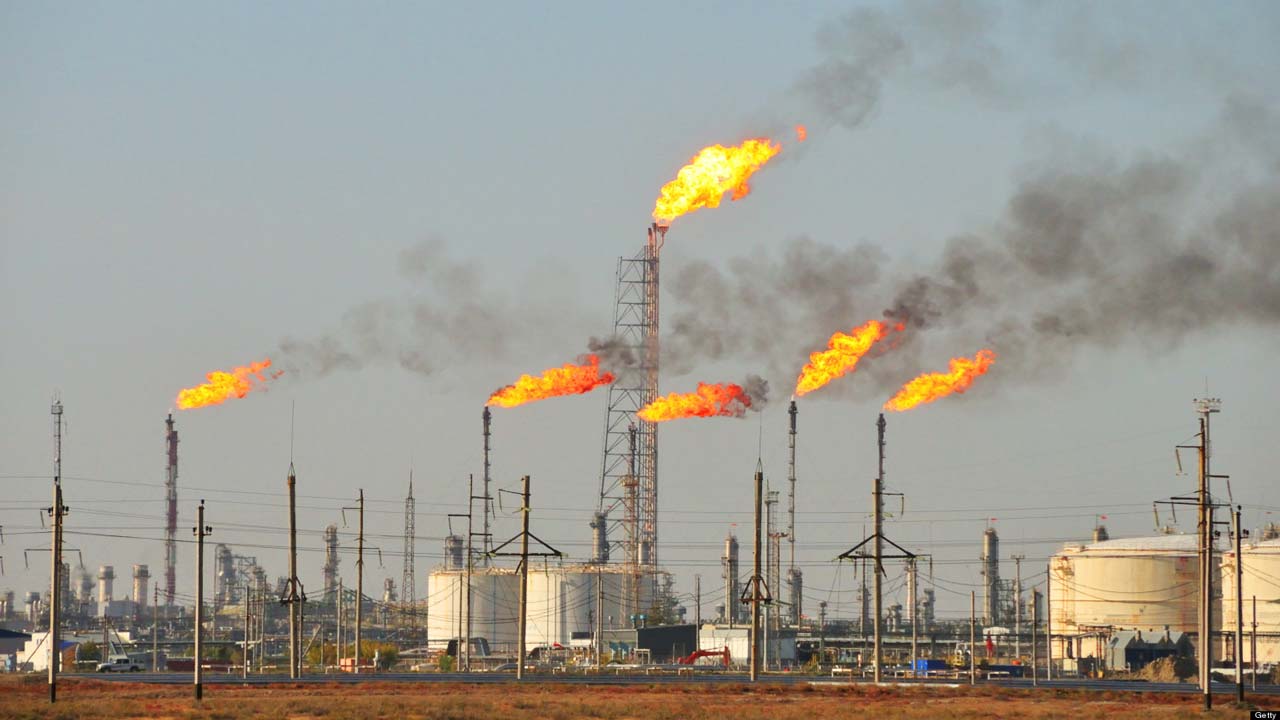Nigeria is at a critical juncture due to numerous mistakes made in the oil and gas sector. These errors, along with greed and mismanagement by political elites, as well as monopoly power, which is enriching a few, have significantly contributed to the fall and fall of the oil and gas sector as well as the nation’s economic crisis. As the relevance of the oil industry peaks amid climate and environmental challenges, recent disputes between operators in the downstream and upstream sectors in Nigeria could spell trouble for the masses. KINGSLEY JEREMIAH examines the issues.
Nigeria’s oil sector, a critical industry involving literally all tribes in the country, is in distress as operators and regulators fight dirty to protect and expand their influence. Such selfish interests have over the years plummeted the nation’s oil production to a record low of 1.25 million barrels per day and deflected the country’s refining capacity to near zero. This situation has resulted in removal of subsidies, foreign exchange crisis, increased borrowing and shrinking oil and gas revenue. The masses bear the direct consequences more. At the moment, the masses pay about N680 per litre with a subsidy of about N500 on every litre as the loggerheads between refinery owners, especially Dangote Refinery, and the upstream and downstream sectors take a new twist.
Already, the downstream segment of the oil and gas sector have suffered from decades of over-reliance on imported petroleum products and subsidies as well as monopolistic practices which places the Nigerian National Petroleum Company Limited (NNPC) as the sole importer. With the emergence of Dangote Refinery, most stakeholders are already projecting a transfer of the age long NNPC monopoly to Dangote Refinery.
While the upstream sector, with stagnant reserves and dismal production, suffers from a lack of investment and trust from both local and international investors, most international oil companies are already leaving and the attempts to improve production and reserves have met deadlock. The reasons for this misfortune have been stressed by most stakeholders; Nigeria delayed the Petroleum Industry Act (PIA) for long and when it was eventually passed, it came out as a document that prioritised the regional interest of politicians and their sponsors and the implementation has been awful.
Decades of steady destruction
NIGERIA’S oil refining began with a 38,000 barrels per day (bpd) plant built by Shell-BP in 1965, later taken over by the government and renamed the Nigeria Petroleum Refining Company (NPRC). The government’s complete acquisition in 1978 marked the beginning of a decline in the downstream segment as investors lost interest. Subsequent refineries in Warri, Kaduna and Port Harcourt initially operated efficiently but later suffered from political interference and economic mismanagement.
In the 1990s, the military government’s actions forced the NNPC to transfer its accounts to the Central Bank of Nigeria, leading to further decline. By 2020, all refineries were shut down after incurring substantial losses. The NNPC spent heavily on maintenance and operating expenses, but with little success. A National Resource Charter (NNRC) report indicated that between 2013 and 2017, $396.33 million was spent on Turn Around Maintenance (TAM) for the refineries, and from 2015 to 2018, N276.872 billion on refinery operating expenses. Operational deficits have persisted, primarily to pay 1,701 workers.
The defunct Petroleum Equalisation Fund and Sani Abacha’s regime further complicated the sector with normalised subsidies. Under former President Olusegun Obasanjo, licences for private refineries were issued, yet only 28 of 68 licences were rated active, with a combined capacity of 1.09 million bpd.
The upstream segment, largely driven by private investment, has fared better, although recent years have seen a decline due to delayed legislation and climate concerns. International oil companies have been divesting, reducing Nigeria’s crude production from 2.3 million bpd to around 1.3 million bpd, with the government attributing this to oil theft and stakeholders citing lack of investment.
There has been a divestment spree. This week, Chappal Energies’ agreed to acquire TotalEnergies EP Nigeria Limited’s for $860 million. Other significant divestments include ExxonMobil to Seplat for $1.3 billion, Shell to Renaissance for $2.4 billion and Eni to Oando for $500 million.
The situation at the downstream and the upstream only makes the masses suffer more because they only get what is left and when there is nothing left, the government and the capital will collect what the masses have saved up.
For instance, President Bola Tinubu projected to increase oil and gas revenue to N7.69 trillion in 2024 and oil production to 1.78 million bpd but the projection have been elusive with Nigeria facing a shortfall of 88.2 million barrels in the first part of the year, equating to a $7.1 billion loss. Now, the president has turned to borrowing for the masses to pay now or in the future while lifting from the Consolidated Revenue Fund.
Between domestic refinery owners and oil producers
THE commissioning of the 650,000 barrels per day Dangote Refinery introduced a new twist to the global petroleum market, impacting both crude oil and refined product markets. Arguably, refining locally is the best option for Nigeria. Domestic Refinery will help Nigeria reduce importation of petroleum products and provide feedstock for industries such as pharmaceuticals, construction and lubricants. It will also create jobs and help stabilise the economy. Across African countries, the domestic refinery in Nigeria will help meet demand previously fulfilled by Europe and other parts of the world, altering the market structure for other refineries exporting to Africa. On the crude side, Nigerian crude has become more competitive, with refiners who once relied on the country’s grade of crude seeking replacements as the volume of Nigerian crude in the international market decreases.
As important as domestic refining is, recent developments have shown that there is a huge transitional gap that appeared like both Dangote and the Federal Government were out to deceive ordinary Nigerians. This problem, which started with Dangote Refinery making an outcry over inability to get crude, especially from IOCs, escalated to the issue of dirty fuel, reduction in NNPC share from 20 per cent to seven per cent without transparency and accountability and now to the revelation that Dangote Refinery has not been fully licenced and that the refined products are not meeting quality and as such government would not put all its eggs in a single basket for the purpose of energy security.
There are about three stages of licencing for a refinery in Nigeria: License to Establish (LTE), Approval to Construct (ATC) and Licence to Operate (LTO). While there have been indications that these stages are yet to be completed, the fact that Dangote and the Nigerian Midstream Downstream Petroleum Regulatory Authority (NMDPRA) or the defunct Department of Petroleum Resource (DPR) is waking up to the challenge of feedstock is debilitating and shows huge regulatory and business analysis failure.
Apart from submitting a feedstock plan, it appeared that the players did not watch the market structure to factor the over 10 years of steady decline in the nation’s oil production alongside the steady divestment which has been affecting crude oil output. Currently, Dangote Refinery has a refinery with a capacity of 650,000. The upcoming Bua Refinery in the South-South region will need about 200,000 barrels per day of crude oil. The NNPC aims to bring back its 445,000 barrels per day refineries from early August if the group Managing Director of NNPC, Mele Kyari, honours the promises he made at the National Assembly this week, while existing modular refineries require 27,000 barrels per day. This feedstock alone is 1,322,000 million bpd. There is already a shortfall even if Nigeria stops exporting crude.

Sadly, NNPC and local business owners in Nigeria own over 70 per cent of this crude oil but NNPC has been involved in a number of contracts that have technically eroded its share of crude oil. These contracts included the Afrexim bank loan where the NNPC is committing 90,000 bpd of crude.
For the purpose of context, it is good to know that approximately 18 per cent of Nigeria’s oil reserves are in deepwater, 25 per cent offshore, 26 per cent in swamp areas and 31 per cent on land. In terms of production, 30 per cent comes from deepwater, 29 per cent from land, 26 per cent offshore and 15 per cent from swamp areas according to statistics from the Nigerian Upstream Petroleum Regulatory Commission (NUPRC). Governed mainly by Joint Venture Agreements and Production Sharing Contracts (PSC), the NNPC holds over 50 per cent of oil production in joint ventures, which account for about 70 per cent of the entire operation, while PSCs, predominantly operated by International Oil Companies (IOCs), account for about 30 per cent, according to NUPRC statistics.
Unfortunately, production from deepwater, where IOCs invest heavily in exploration and production and recover their costs before paying Petroleum Profit Tax (PPT), royalties and other levies to the government, has been under threat. A report by the Nigeria Extractive Industries Transparency Initiative (NEITI) covering 2021 showed that only 12 of the PSC blocks recorded production, while 23 blocks, representing 66 per cent of the total number of PSC blocks, had no output. The last major investment from the IOCs came over 10 years ago with TotalEnergies’ Egina, except for the $550 million Ubeta Final Investment Decision (FID) taken last month.
Chairman of the Independent Petroleum Producers Group (IPPG), Abdulrazaq Isa, had earlier this month warned that unless Nigeria grows its oil production to 2.5 million bpd and 10 billion cubic feet of gas in the near to long term, the emerging refining capacity in the country would suffer.
Another key regulatory issue that is just coming up in Nigeria is market structure for the trading of crude oil. While the PIA created the Domestic Crude Supply Obligations, which compels producers to supply crude oil to local refineries, the challenges Dangote has faced with local producers relates to pricing and marketing structure, which the NUPRC has only recently put in place.
The Vice President of Oil and Gas at Dangote Group, Devakumar Edwin, had said the IOCs active in Nigeria want extra $6 on every barrel compared to market price. In most situations, Nigeria crude sells higher and this situation should have been known, especially where there are no pre-existing contracts for crude supply. The other challenge, Edwin pointed to, was that the IOCs were referring the refinery to their global trading department. This is also another market related issue that is relatable.
To underscore the trading and market issues, crude oil supply to the refinery is being enforced as well as the conformity of the local market to global best practices for trading, supply and delivery of crude to the refinery while also designing the pricing formula for crude, which aligns to international best practices, the logistics side of the business have come up as serious issue.
The Chief Executive of NUPRC, Gbenga Komolafe, had specifically told The Guardian: “The refiners failed in operational approaches because there are operational standards for crude oil supply. It goes along with international best practices. The local refiners will not put payment instruments in place as expected. They were not also doing revision of delayed vessels at the right time. They will not fix the vessel to pick the crude at the right time or they will bring the wrong specification of vessels. These are operational inefficiencies on the part of the local refiners.” According to him, the development was leading to shutdown of terminals and shut-in of production, which was affecting the nation’s crude oil output.
Quest for cheaper crude vs stronger domestic crude supply obligations
BUSINESS is about profit, and refinery operations are no different. In refining, feedstock (crude oil) accounts for 70-80 per cent of expenses, prompting refinery owners to seek cheaper crude. Refining economics hinges on the interplay of refined petroleum product value, crude cost, refinery capital and operating costs.
Refineries, like Dangote Refinery, can process various crude types, including West Texas Intermediate and Brazilian crude. Nigeria’s crude, among the cleanest globally, is ideal for producing Premium Motor Spirit (PMS).
While Dangote has focused on diesel, the demand for Nigeria’s crude may rise to meet PMS production needs. Nigerian grades like Bonny Light, Brass Rivers and Qua Iboe have historically traded higher than WTI, averaging a $20 premium in 2012. Recently, Brass Rivers and Qua Iboe were trading at around $88 per barrel, $6 higher than WTI.
Dangote Refinery optimises operations for maximum margin, exporting aviation fuel to Europe, delivering diesel and aviation fuel domestically and to West Africa, and shipping naphtha, fuel oil, and gasoil to Europe and Asia. Plans include building a terminal in the Caribbean to access the North American market and expanding storage capacity by 600 million litres to 5.3 billion litres.
For the domestic crude market to thrive, it must adopt a robust plan that mirrors global standards without favoritism. Section 109 of the Petroleum Industry Act, 2021, mandates Domestic Crude Supply Obligation, outlining rules for curtailing production and utilising produced petroleum for export and domestic supply, pursuant to sections eight and 109 of the PIA. Ensuring a willing buyer-willing seller arrangement is crucial to avoid gas market crises. Pricing crude according to international standards and future-proofing logistics, including vessels, is essential for a robust value chain.
Dirty fuel, monopoly and continuous importation
THE issue of dirty fuel has long plagued Nigeria. In September 2016, Public Eye, a Swiss organisation known for its investigative research, revealed the double standards of European refiners, stating that sulfur levels in fuel imported into Africa were up to 300 times higher than what is permitted in Europe. Artisanal refiners in the Niger Delta were producing cleaner fuel than imported products, indicating regulatory lapses.
In response, Nigeria, along with Benin, Togo, Ghana, and Côte d’Ivoire, banned dirty fuel imports in December 2016. However, this ban was not enforced until some European countries recently prohibited their refineries from exporting high-sulfur fuel. In April this year, Nigeria introduced new guidelines to ban the import of petroleum products above 200 parts per million (PPM), still high compared to the 10 PPM standard in developed countries.
Dangote accused NMDPRA of granting licences to marketers to import dirty fuel, potentially implicating NNPC, the sole importer of petroleum products. NMDPRA revealed that domestic refineries, including Dangote, which claimed Euro Five standards (10 PPM), were producing fuel with sulfur content between 650 and 1,200 PPM. This regulatory failure exposed public servants like Farouk Ahmed, head of NMDPRA, for allowing substandard production.Dangote accused NMDPRA of granting licenses to marketers to import dirty fuel, potentially implicating NNPC, the sole importer of PMS to Nigeria. NMDPRA revealed that domestic refineries, including Dangote, which claimed Euro 5 standards (10 PPM), were producing fuel with sulfur content between 650 and 1,200 PPM. This regulatory failure exposed public servants like Farouk Ahmed, head of NMDPRA, for allowing substandard production.
Dirty fuel, traded internationally at a cheaper price could be desulfurised in facilities to meet standards or sold in markets allowing high-sulfur content. While traders off-take from Dangote, they could take it to another blending facility, make it clearer and charge extra or take it to markets that permit the level of sulfur. There are indications that NMDPRA had given waivers to domestic refineries to produce at their high sulfur standards till end of the year.
Despite desulfurisation plants in most refineries, including Dangote’s, which can reduce sulfur content by up to 70 per cent, the product becomes more expensive when such happens. High sulfur content reduces the effectiveness of emission control systems and contributes to air pollution, linked to health issues such as cardiovascular disease and cancer.
While NNPC has long controlled the downstream market, NMDPRA indicated that Dangote Refinery wants all marketers directed to his factory, raising concerns of a monopoly transfer from NNPC to Dangote.
Although local production should be encouraged over importation, there must be a level playing field to ensure a competitive market. Monopoly can lead to market failure, limiting efficiency, innovation, healthy competition and price control.
Licensing, NNPC’s seven per cent and problem of transparency
AS stated earlier, establishing a refinery in Nigeria involves three licencing stages: License to Establish (LTE), Approval to Construct (ATC), and License to Operate (LTO). Comments from Farouk Ahmed, the Chief Executive Officer of NMDPRA, likely refer to one of these licences, particularly the LTO.
Recently, it became evident that the NNPC misled Nigerians by claiming 20 per cent ownership of the Dangote Refinery. While the NNPC later stated that it capped its investment as a management decision, this development, along with the licencing issues, highlights the ongoing opacity in the oil sector despite numerous calls for transparency and accountability. It also underscores that the Petroleum Industry Act (PIA) has not significantly improved transparency and accountability, particularly for a company like NNPC, which aims to list on the stock market.
Protecting consumer right
“WHEN two elephants fight, it is the grass that suffers.” This African proverb implies that the weak get hurt in conflicts between the powerful. In the context of Nigeria’s oil sector, it highlights the need for the Federal Competition and Consumer Protection Commission (FCCPC), NMDPRA and the National Assembly to understand the issue at stake and ensure that the interests of ordinary Nigerians are protected.
While encouraging local refineries, Nigeria must protect consumers from high prices. The best way to achieve this is through liberalisation, competition and an open market. Domestic refiners must compete within the market to drive efficiency.
Nigeria’s best interests are served by operating efficiently. Our greatest exports, with the highest returns, are Nigerians. If we block trade from other countries during the coming ACFTA, we risk being blocked by other countries.


















